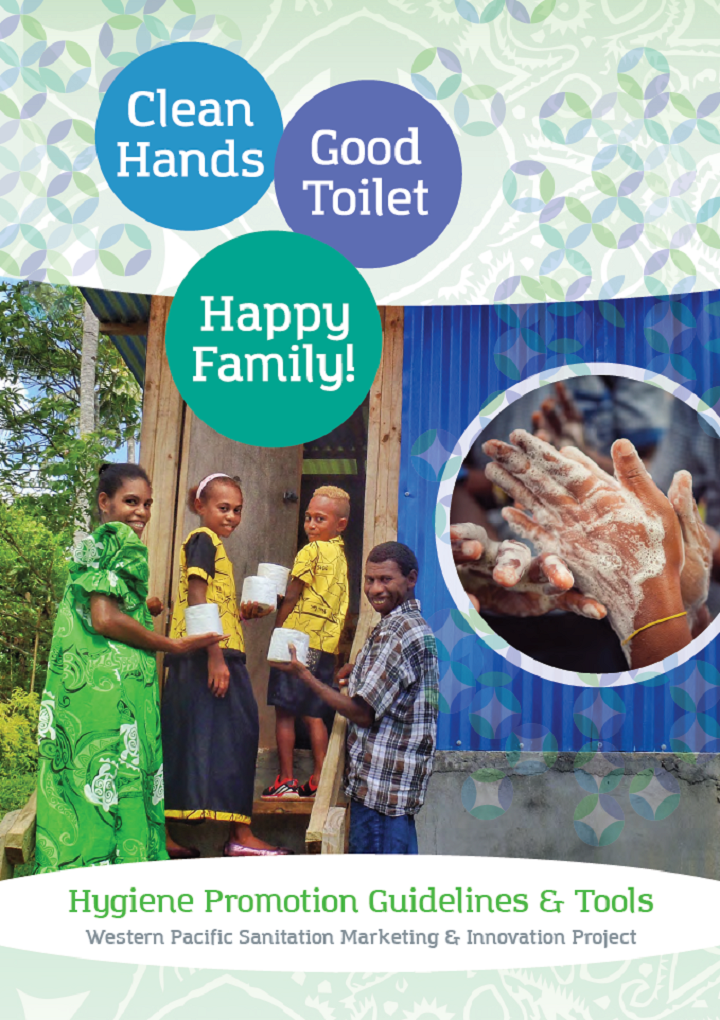Clean Hands, Good Toilet, Happy Family! Hygiene Promotion Guidelines and Tools. Western Pacific Sanitation Marketing and Innovation Project Abel, M. (2017)
It feels good to be clean. It feels good to live in a beautiful environment. It feels good not to get sick. Influencing health behaviour change seems like it should be simple. Present the logical evidence (information) for why changing a behaviour is worthwhile (washing hands kills germs) and the need for change should be obvious. But logic isn’t the only basis for making decisions about behaviour. Each of us is a mixture of conscious and unconscious motivations, cultural preferences and habits. Logical reasons for choosing healthy habits don’t always effectively reach our unconscious desires or habits. Students working with Live & Learn discovered this in a group discussion. We had been talking about washing hands with soap. All the students were clear on how to wash their hands (the technique) and the important reasons for washing their hands with soap. But when asked if they always washed their hands when they knew they should the students were a bit embarrassed. Sometimes they didn’t. We explored a few reasons, but one of the more interesting ones involved not washing their hands before eating lunch. In their school local mothers came to the school at lunch time to sell food. Most students didn’t bring a packed lunch, but purchased food from the mothers. Some of the mothers were better cooks than the others. Once the lunch bell rang there was a race to be the first to buy the most tasty food before it was sold out. Students who stopped to wash their hands first would miss out. So the students had good intentions to always wash their hands with soap at critical times, but the desire for the best-tasting food conflicted with the knowledge about washing hands to get rid of invisible germs. At this decision point hungry stomachs won the decision-making battle! The students then started talking about strategies to enable them to get the good food AND eat it with clean hands. This manual provides guidance for Live & Learn staff to the different ways (conscious and unconscious) that we make decisions, and some specific ways we can design hygiene promotion campaigns to influence positive health behaviour change. The approaches described borrow from the fields of health psychology and social marketing, combined with traditional health education activities. The manual is produced for the Australian government funded Western Pacific Sanitation Marketing & Innovation Program, so the focus is on the key hygiene messages of this project: Owning an improved or new toilet, and washing hands with soap at critical times. But the theoretical approach used, and the framework for planning campaigns, can be adapted for application to any health behaviour change activity.
Bibliographic information
Abel, M. (2017). Clean Hands, Good Toilet, Happy Family! Hygiene Promotion Guidelines and Tools. Western Pacific Sanitation Marketing and Innovation Project Live & Learn Environmental Education
Filter / Tags
Guidelines and manualsEnglish
Downloads
Clean Hands, Good Toilet, Happy Family! Hygiene Promotion Guidelines and Tools. Western Pacific Sanitation Marketing and Innovation Project.
Type: application/pdf
Size: 11.57 MB

